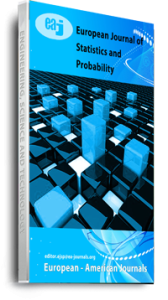This paper investigated impact on the environmental and health effects of solid waste management in the federal capital territory: a case study of Abaji area council, it revealed that the data collected from nearby dumpsite household residents were less than 30 m and far away household residents greater than 30 m through interviews and personal observations were used to collect some of the data. This paper adopted descriptive statistics tool of tables, figures and graphs to present the data. The educational level of respondents of Nearby Residents (NBR) ranges from 30.00 to 115.00 with total of 145 and Far Away Residents (FAR) are between 53.00 and 110.00 with total of 233.00. The disposal methods used by respondents’ ranges from 35.00 to 128.00 with percentage between 9.00 to 32.00 for NBR and 23.00 to 85.00 with 10.00% to 36.00% for FAR. The findings indicate that because the dumpsite was located closer to NBR and FAR’s communities, both groups experienced linked illnesses such cholera, diarrhea, and malaria. This paper therefore recommended that urgent attention should be given to environmental education for the people in the study area.
Keywords: Chi-Square Test, Environmental, Solid waste management, T-test, health effect

